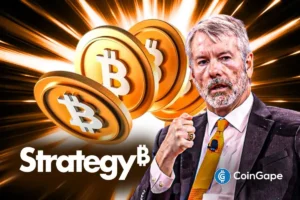The Rise of ChatGPT: A New Era of Digital Engagement
ChatGPT has transformed into one of the busiest online destinations, evolving from a simple productivity tool to a vibrant virtual community. With over 800 million registered users and around 125 million daily participants, the platform is drawing attention reminiscent of past social media trends—bringing users back for an average session length of approximately 14 minutes. This phenomenon has not gone unnoticed, especially at Meta, where concerns are rising over how ChatGPT might impact user engagement and ad revenues.
A Competitive Landscape
Sam Altman’s comments highlighting OpenAI as Meta’s "deepest competitor" signal a shift in the battle for user attention. The competition is less about technical capabilities and more about time—the critical currency that drives Meta’s estimated $160 billion advertising empire. Each moment spent engaging with ChatGPT reduces the likelihood of users scrolling past ads on platforms like Facebook and Instagram. With users turning to ChatGPT for quick interactions and engagements, Meta finds itself facing an existential challenge: users are becoming more inclined to seek engagement elsewhere, directly impacting ad viewership.
ChatGPT’s Engaging Interface
The user interface of ChatGPT draws parallels with the addictive nature of traditional social feeds, but with a focus on meaningful dialogue rather than sensational content. AI analyst Rohan Paul noted that users generate around 2.5 billion prompts daily, each representing an intimate exchange between human and machine. Recent data from Similarweb projects 2 billion visits to OpenAI services in May 2025, indicating a significant trend where individuals seek validation and connection through AI instead of conventional social networks. The shift suggests users prefer private conversations with AI models over public social media interactions.
The Threat to Traditional Social Media
Meta’s business model relies heavily on user engagement on platforms like Instagram, which anticipates generating over $32 billion in U.S. ad revenue in 2025. However, every minute users spend interacting with ChatGPT translates to fewer opportunities for advertisers to reach potential customers. ChatGPT’s ability to fulfill social needs—from immediate emotional support to engaging discussions—poses a direct threat to Meta’s advertising empire. Research shows that users form deep connections with AI companions, sometimes even romantic ones, further shifting the dynamics of online interaction.
The New Relationship Dynamics
As users increasingly gravitate towards one-on-one interactions with AI, traditional social media platforms that rely on community engagement face a challenge. Unlike Meta’s public feeds, where users compare themselves against others, ChatGPT creates a personal experience, fostering individual connections. The platform’s success hinges on three key elements: memory retrieval for continuity, persona prompts for tone management, and fast vector caching for simulating long-term memory. This personalization enables a unique interaction style that many find appealing, effectively replacing the need for broader social validation.
The Financial Implications for Meta
The competition isn’t merely about technology; it’s about human engagement. As Altman suggests, the market for human moments—those fleeting interactions before bed or quick curiosity-driven checks—is pivotal. The potential loss of even a fraction of Meta’s 3.4 billion daily users shifting their attention to chatbots could have profound financial repercussions. With every minute spent in ChatGPT drawing users away from ad-rich environments, instability in ad inventory growth could lead to significant shifts in revenue streams for Meta.
In conclusion, the emergence of ChatGPT signals a new era in digital interaction. As users prioritize meaningful engagements over traditional social media updates, traditional platforms may need to reevaluate their strategies to retain relevance in an increasingly competitive landscape. The ticking clock inside Meta’s walls sounds a clear message: adapt or be left behind in the rapidly evolving digital marketplace.

















